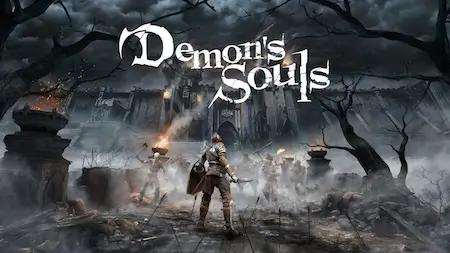As entertainment consumers, most of us love remastered old releases. Whether it’s music or film, giving the classics an update is more often than not a net positive.
This surge in popularity ties directly to the broader retro gaming revival, which we explored in detail in Why Retro Gaming Is So Popular – 10 Reasons It’s Back in a Big Way.
And the trend of remastering old video game titles has also grown to be a mostly positive thing, as we discussed in our article on video game sequels.
✅ Key Takeaways
- Remasters keep classic games alive for new generations of players.
- Excessive re-releases without improvements can feel like cash grabs.
- The best remakes, like Resident Evil 2 and Demon’s Souls PS5, elevate originals into modern masterpieces.
The Table of Contents
That article ended with a call-to-action that encouraged readers to think of video game updates that have all but ruined the originals. But besides the titles themselves, there are factors to consider when weighing the negatives and positives of video game remasters.
Remasters from the development perspective
Another one of our posts politely elucidated the myriad ways in which publishers are screwing gamers for money.
It’s a real problem and these companies should be taken to task for their anti-consumer practices. But where it concerns remastered video games, it might be valuable to look at the trend from the point of view of the publisher.
Development costs for games have skyrocketed, with “Grand Theft Auto V” famously cost $265 million just to develop. By putting out remasters, developers can deliver titles to market with limited time and effort on their part.
Which fills the company development budget and allows them to complete the new titles we all crave. It’s something to consider, and hopefully the next point further expands on this.
Recent high-profile remakes like Dead Space (2023) or The Last of Us Part I (2022) highlight how publishers leverage existing franchises to balance budgets. These weren’t just visual touch-ups but near-full rebuilds that still cost significantly less than creating a brand-new IP from scratch.
Remasters as a conduit to a new audience
In the mentioned piece, we referenced "Halo" and "The Legend of Zelda: Wind Waker" as sixth-generation titles receiving an HD overhaul. These remasters offered gamers the ability to seamlessly toggle between old  and enhanced graphics, addressing certain gameplay issues along the way.
and enhanced graphics, addressing certain gameplay issues along the way.
Consequently, many enthusiasts found themselves revisiting these classics in a manner they might not have otherwise if limited to the original versions alone.
Remasters often play a pivotal role in reigniting dormant enthusiasm for games. Conversely, they serve as gateways for new audiences and younger generations to explore these vintage titles.
However, skepticism arises regarding the genuine motives of game companies, especially considering the widespread absence of backward compatibility in most next-gen consoles (with the exception of Xbox One, which deserves recognition for incorporating this feature). More on this topic follows below.
Too many remasters from one console generation to the next
The recent explosion of remasters, from Xbox One to Xbox X, and PlayStation 4 to PlayStation 5, is a bit of an overkill. Reasonable people can disagree on the benefits of updating a title between console generations, but do gamers absolutely need game updates every couple years?
Was there such a generational and technological gap between back in the 2010s, that every god of war game has been remastered for the PS5?
IGN would say that, yes, there were benefits, such as the 1080p update and steady frame rate. But it’s a harder sell to suggest that the 2010 version of God of War III is so arcane that they just had to remake it.
Gamers today are also split on titles like Resident Evil 4 Remake (2023). While widely praised for its polished gameplay and visuals, critics point out it’s another example of publishers leaning on nostalgia instead of innovating with new ideas.
- As Kotaku notes in its review, Capcom had already remastered Resident Evil 1–3 before returning to RE4—a game it had re-released in HD, VR, and countless ports. Skeptics wondered if a remake was necessary, but the final product not only justified itself, it arguably surpassed the original classic.
Luckily, gamers can take solace in the fact that most game remasters sell for the fraction of a price of a new title, and some, like the Mass Effect: Legendary Edition (2021), which offers three updated games with enhanced visuals and gameplay tweaks for the price of a single new release, are great deals any way you cut it.
The Retro Wrap Up & Our Take
Ultimately, remastered video games are a good thing, as long as they deliver truly updated graphics (with the ability to toggle between old and new animations), remedy the flaws of the original, and allow players to enjoy their favorite titles on next-gen consoles.
In the best cases—such as Demon’s Souls on PS5 (2020)—remasters and remakes breathe life into beloved classics while introducing them to entirely new audiences. As Forbes noted in its review, the remake elevated the cult classic into a mainstream showcase for next-gen power.
However, updates are most decidedly a bad thing when they become a shameless cash grab. Releasing the same title whenever a new console comes out (because of a lack of backwards compatibility) robs players of the perspective they glean from comparing new and old versions of the titles.
Frequently Asked Questions:
What’s the difference between a remake and a remaster of a video game?
- A remake rebuilds a game from the ground up, often with new graphics, mechanics, or story changes, while a remaster updates the existing game with improved visuals, audio, and performance but keeps the core design intact.
Are remastered games worth it?
- Remastered games can be worth it when they improve graphics, fix performance issues, or add quality-of-life features. However, frequent or unnecessary remasters may feel like cash grabs if they don’t offer meaningful upgrades.
What game has the best remaster?
- Resident Evil 2 Remake (2019), Demon’s Souls PS5 (2020), and Shadow of the Colossus (2018) are often ranked among the best remasters and remakes for staying faithful to the originals while adding modern improvements.
Why do game companies remaster old titles?
- Companies remaster old games to introduce classics to new players, extend the life of popular franchises, and generate revenue at lower development costs compared to creating entirely new games.
Is Resident Evil 4 a remake or a remaster?
- Resident Evil 4 (2023) is a full remake, not just a remaster. Capcom rebuilt the game with new visuals, updated mechanics, and design changes, going far beyond a simple graphical upgrade.



